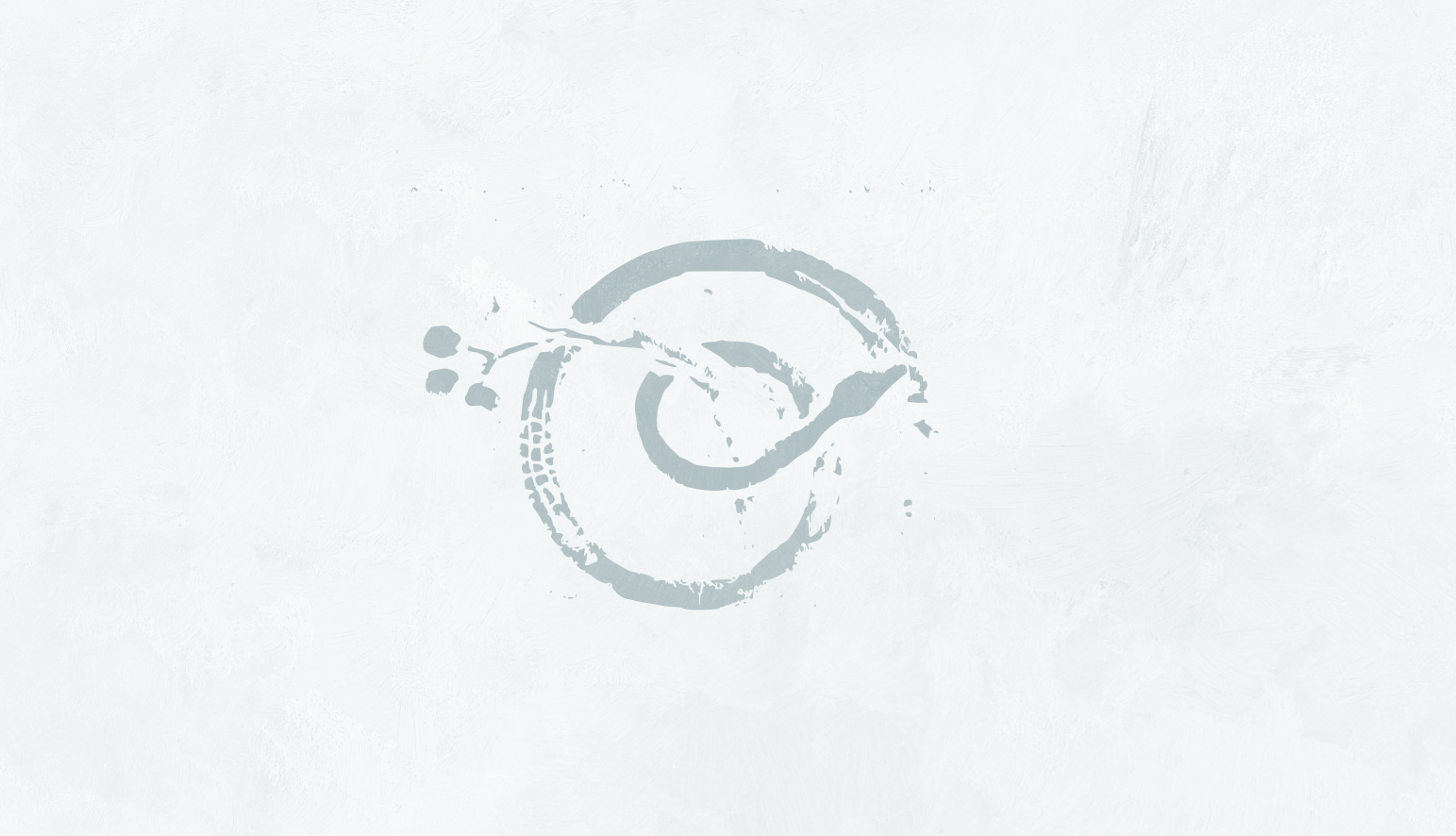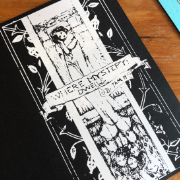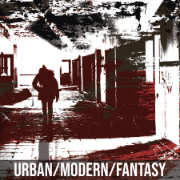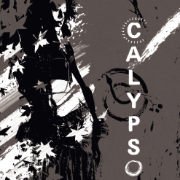OSR Mutable Class

filed under mechanics on 09 Nov 2016
tagged osr, class, mutable, scarlet heroes, and kyneros
test
One of the great things about solo play is that you never, ever have to worry about hogging the spotlight or being overpowered. It gives you a chance to play those wild, crazy classes your usual gaming group would never tolerate (“I’m playing a Wild Mage. There’s only a 3% chance I’ll accidentally kill everyone”). It also gives you a chance to explore themes and situations your usual gaming group might run screaming from (“Cthulhu is totally okay, but I draw the line at all that kissy-face stuff”). And if a class has lots of moving parts to track, you’re not inconveniencing anyone else (“hang on, I attack, I just need to cross-reference four charts and remember algebra to see if I hit”).
So, inspired by this much more inventive and flavorful and old school version of a psionic, I created the Mutable class.
Not psionic. Not very OSR. Probably only suitable for solo gaming. Over-powered. Spotlight-hogging. Fiddly. Also very fun to play!
Mutable
Built on a Scarlet Heroes frame, liberally mixed with Red Tide, and seriously skewed by later D&D editions.
- Armor: Any and shields
- Weapons: Any, but limited to 1d6 damage
- Initial HP 6
- HP: +3 per level
- AB +1
- AB +1/2 per level
- Fray: 1d4 + 1 point per repertoire power use remaining, against anyone
Base armor, attack bonus, and weapons as cleric, base everything else as magic user. For unspecified purposes, treat as magic user.
Power uses per day: 1/level May also spend 1d10+1 HP to restore a power use.
Special: Choose a prime requisite stat; this is used for all abilities and saves regarding your Mutable abilities unless otherwise specified or if ambiguous and may not ever be changed.
Overview
The Mutable is shaped by the magical wonders he has witnessed; something within him is malleable and allows him to channel those wonders into raw and, sometimes, focused magic.
He can manifest the abilities of any magical, spell-like, or supernatural power he has ever seen used or experienced first hand. Ghoul paralysis, troll regeneration, a medusa’s gaze, a merman’s water-breathing, even a dragon’s breath might be counted among the mutable’s powers. However, mortal frames were not intended to contain such alien power, and the Mutable will always struggle with control.
Repertoire
The repertoire is the pool of magical powers the mutable has to draw on. Whenever the hero directly witnesses a magical, spell-like, or supernatural ability being used, he may add it to his repertoire, noting DCs, damage, mechanics, source, and monster HD. Once per day per level, he may use a power from his repertoire as if he were a creature of the appropriate type and HD. If he has no power uses remaining, he can choose to spend 1d10+1 HP to regain a power use. A hero can choose to voluntarily relinquish any power from his repertoire.
The GM has final discretion over the definition of “witness”, what is allowed to be added to repertoire, as well as what counts as a valid trigger for adding it. If you’re soloing, ask your oracle.
If an ability is essentially permanent, like a merman’s water breathing, a power use must be spent to activate it and one must be spent to deactivate it – once at the moment it is activated and once at the moment it is released. Feedback saves apply at both points.
As long as a power is active, the hero counts as a creature of that kind for all purposes. Look at the power (and the targeting effect) as a guide. If a creature’s power specifies that the power can’t be used against the creature itself, the Mutable gains this immunity along with the power. Otherwise, other than gaining a general type, he doesn’t automatically gain any immunities or weaknesses the base creature has, other than against effects directly targeting its type (undead, elemental, automaton, extraplanar, and so on).
Power uses return after a good night’s sleep or on the same schedule as spells.
At level one, choose one creature of no more than 7HD; you have one of this creature’s powers in your repertoire after an encounter with this creature. Roll once on your choice of feedback chart and apply the results as if they happened some time ago, choosing which NPCs from your backstory, if any, would be affected.
Spellfire
As long as the hero has at least one repertoire power use remaining, he can channel raw supernatural energy to emulate a weapon as a “draw” action. This ability is counted as a power in his repertoire with a power HD equal to his class level (and a creature source of himself). These “weapons” do 1d8 damage at level one, plus an additional 1d8 at every odd class level. Using this ability does not use up any power uses.
When activated, select a melee or ranged weapon to emulate; damage remains the same but attribute used depends on the weapon emulated (as does if the weapon can be thrown or not). The range of Spellfire as a ranged weapon is always 15/30/- (or as thrown knives). The damage done by Spellfire is considered magical force. Spellfire attacks used at melee range gain +1 to attack for every two class levels.
Switching to a new emulated weapon takes as much time as dropping an existing weapon and drawing a new one.
Feedback
After using a power other than Spellfire, make a prime attribute save against 9 + 1/2 power HD + any HP spent to activate the power + 1 for each power use spent that day + 1 for each maintained active power. Failure means the hero loses control of the power he contains and suffers feedback. Randomly select the “inward” or “outward” chart and roll 2d6 on it to see what the effect is.
For the purposes of these charts and determining outside targets, first figure out who is a valid target within range, then select the one who is physically closest to your hero. If uncertain, or if it would be more interesting (or if the physically closest target has already been targeted once during this feedback cycle), roll randomly. Unconscious targets are still valid targets.
When a Feedback roll is failed, use the characteristics, powers, and HD of the original creature of the power as your guide for the following effects.
“Fall unconscious” is handled as if knocked unconscious by non-lethal damage; generally, the target wakes up a few minutes to hours later with 1 HP or 1 HD. Feedback damage is generally non-lethal to the hero; if an effect or damage would drop him to 0 or fewer hitpoints, he instead is unconscious. It can, however, be quite lethal to people standing around the hero. If a hero is knocked unconscious, any Feedback loops are broken.
Inward Feedback (2d6)
2. lose all remaining power uses for the day; HP spent to activate powers is doubled for that same period
3. unconscious and lose half remaining hit points
4. stunned 1d4 rounds; all abilities and saves at -4 for the duration
5. take the power's HD in penalties to all ability checks and saving throws for the rest of the day
6. take one half the power's HD in penalties to all ability checks and saving throws for the rest of the day
7. take hp damage equal to monster HD
8. gain one drawback or weakness, mental or physical, of the original creature for one week
9. choose one urge the original monster would have (eat raw flesh, collect treasure, murder living creatures, and so on); as soon as it's reasonably safe to do so, you must seek to indulge that urge. Each time you are thwarted (either by being prevented or lack of target), take 1d6 damage and make an additional saving throw to recover; the urge passes after 1d6 units of time appropriate to the urge, a saving throw is made, the hero is unconscious, or the urge is satiated.
10. develop a mild mental quirk or physical appearance quirk related to the original creature until the power is no longer in the repertoire.
11. gain one drawback or weakness, mental or physical, of the original creature until the power is no longer in repertoire
12. roll again on this chart and once on the minor effects chart. If this result occurs again count that roll as 'no effect'.Outward Feedback (2d6)
2. Everyone for 10 feet times the power HD must make the same save the hero did or be treated as if targeted by a use of the power. The hero falls unconscious.
3. 1d8 people nearby are knocked unconscious if they fail a save versus 9 plus your prime attribute. The hero falls unconscious.
4. 1d8 people nearby are affected by a surge of transforming magic; failed saving throws for each result in one small benefit or hinderance, lasting one week
5. 1d8 people nearby and the hero are afflicted with an urge (as #9 inward) as if they were all monsters of the same tribe or unit
6. The nearest person is knocked unconscious if they fail a save versus 9 plus your prime attribute
7. Lose control of the power; the nearest valid target is affected as if you targeted them with the power. Pay normal costs, including any HP if you're out of power uses, and make a new feedback roll as if you used the power voluntarily. Unconsciousness will break the loop, should you end up in one.
8. The nearest person's subconscious alters your appearance in some minor way that lasts until you next use a power
9. The nearest person develops an aversion or fascination for you, seeing in you the aspect of the creature whose power you've stolen.
10. You learn something about the nearest person they'd rather not share and they learn a similar secret about you
11. The nearest person's subconscious twists some aspect of you, physical or mental. This change persists for a week. A saving throw may be made each morning to revert to normal.
12. Roll again on the Lingering effects chart.Lingering Effects Feedback (2d4)
Lingering effects generally end when the hero loses the associated repertoire power. A repertoire power may be voluntarily relinquished at any time. Other methods of removal might exist as well.
2. As #3. In addition, either indulge your craving once per day or make a Feedback roll daily.
3. Develop a craving based on one of the creature's predilections; when presented with the opportunity to indulge, do so or make an immediate Feedback roll.
4. Gain one mental drawback or weakness of the original creature
5. Develop a mild mental or physical quirk related to the original creature
6. Gain one physical drawback or weakness of the original creature
7. The nearest person who can see or sense you can no longer see or sense you as anything but the monster (1-2), sees and senses you as a merged chimera creature (3-4), or sees and senses subtly "off" aspects of the monster in you constantly (and unnervingly).
8. As #7, except d100 people in the area are affected. Only those who can see or otherwise sense you at the moment this effect occurs are affected.Venting
If the hero does not use his abilities, they may overwhelm him. Once per day the hero goes without using a power he must make a saving throw with a target equal to the HD of the highest power in repertoire. On a failure, if the target DC is 17 or higher, roll on the Lingering effects chart; otherwise, choose one of the two feedback charts and roll against it as the power inside erupts randomly.
Use the highest HD power in repertoire as the active power for any effects. This does not count as a use of the power or against your power limit. Each successive saving throw raises the difficulty by 1, until a Venting, when it resets. Venting may also be triggered by extreme mental, physical, or emotional duress, or if the hero no powers in his repertoire other than Spellfire.
Malleable
A Mutable automatically fails any saves against transformation of the body and takes a -2 to saves against transformations of the emotions or mind.
However, such effects do not “stick”; the Mutable always returns to himself eventually. This return point varies by spell; in general, the effect will last no longer than one appropriate time unit per caster’s level (or 1d6 if caster level is hard to ascertain) or if the effect grants a second saving throw at a later point, once that second saving throw comes to pass he automatically succeeds at it – whichever is longer.
Made of Magic
Mutables can instinctively use and activate items as if they had half as many Magic User levels as they do class levels. When using this ability, there is a 1% chance the item is destroyed.
There is also a 10% chance that Feedback occurs. If the item requires a roll to use, Feedback happens on a 1 as well.
If a mutable is subject to an anti-magic field or to an effect that suppresses their repertoire (which is considered a supernatural ability), they must immediately make an Inward feedback roll.
Aggregate
Mutables don’t age as normal members of their race do; their bodies are sustained by the powers in their repertoire and over time, as they pass beyond their mortal span, the powers inside them warp and twist their bodies (and minds) in unexpected ways, until they are something else entirely – a mishmash of creatures and horrors blended together. They are not immortal or invincible, however, they just tend not to age and die as long as their repertoires are available.
Note: Traits involving meditation, mental or physical balance (such as trained acrobats or monks), stoicism, or similar aspects related to controlling oneself can be used on Feedback or appropriate saving throws following the usual trait rules and restrictions.


